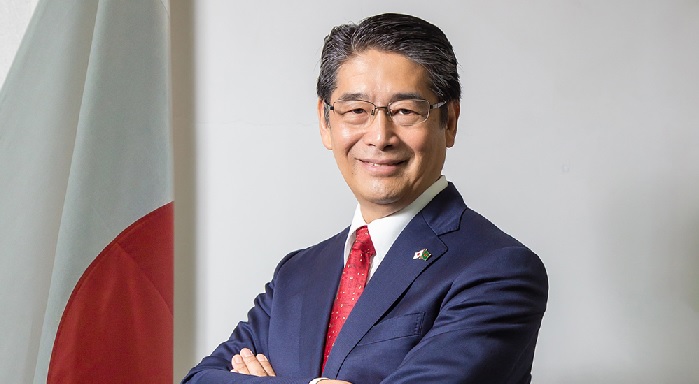Senior officials from Bangladesh’s government are sternly warning ambassadors from major donor nations not to cross a line or interfere with the nation’s politics by airing concerns about the integrity of the vote here.
Envoys representing Japan, the United States, Canada, Britain and other countries have been calling lately for a free and fair climate for voting in the South Asian nation as it heads into the next general election, expected by January 2024.
The ambassadors’ calls come as the opposition Bangladesh Nationalist Party has been staging massive rallies demanding that the Awami League-led government make way for a neutral caretaker administration to oversee the next national polls. The government is refusing to budge on the issue.
Md. Shahriar Alam, the state minister for foreign affairs, said Wednesday that he had summoned Japanese Ambassador Ito Naoki on Tuesday over a comment he made a day earlier.
The envoy said he had “heard that police filled the ballot boxes” the night before the 2018 general election – and had never heard about this happening in any other country.
The vote, marred by widespread allegations of ballot tampering, returned Prime Minister Sheikh Hasina and her Awami League party to power for a third consecutive term.
Alam is among ministers who sharply criticized ambassadors for raising questions in recent weeks about the integrity of the electoral system in Bangladesh.
“When we see it’s crossing the boundary, we are saying very clearly and loudly that we will take appropriate steps,” a local news outlet, The Business Standard, quoted Alam as saying on Tuesday.
“We have summoned the Japanese ambassador,” Alam said in a Facebook post, where he shared a portion of the Vienna Convention on Diplomatic Relations.
“If some of you have forgotten: Article 41 paragraph 1 of the Vienna Convention on Diplomatic Relations 1961 reminds diplomats to respect the laws and regulations of the receiving state and unequivocally restricts them from meddling in that nation’s domestic affairs,” he wrote.
At a Dhaka event on Monday, Naoki said that Japan was hoping for the next general election in Bangladesh to be free and fair.
“We expect the next election will be a better one. Free and fair elections need to be done here. That’s my strong hope,” Naoki said in response to a question at a “meet the ambassador” event hosted by the Centre for Governance Studies.
The public comments by the ambassador took the government by surprise, local reports quoted Minister Alam as saying, because the Japanese government had not raised such concerns in previous meetings with Bangladeshi officials during the past four years.
The Japanese Embassy in Dhaka did not respond immediately to a request from BenarNews for comment.
Warning
Cabinet member Muhammad Abdur Razzaque, who serves as a member of Awami’s executive committee, also warned the Dhaka-based diplomats to refrain from commenting in public about the nation’s political affairs.
“They [diplomats] should be cautious in making comments about any internal issues of Bangladesh as the country is a sovereign state. It will never bow down to anyone and we must uphold its dignity,” Razzaque told reporters at an event on Wednesday in northwestern Meherpur.
Naoki’s comments came after U.S. Ambassador Peter Haas said on Nov. 8 that his nation did not care who won the election as long as it was free and fair.
In Washington a day earlier, the State Department was asked about the climate for political rallies in Bangladesh.
“With respect to the political process and the next election in Bangladesh, we hope for a robust civic participation, and the people of Bangladesh ultimately will be able to choose their own government through free and fair elections,” Department spokesman Ned Price told a press briefing on Nov. 7.
“We urge the Government of Bangladesh to create a safe environment for people to peacefully assemble and to voice their concerns, and relatedly, for opposition parties to campaign without facing intimidation and repression,” he said, responding to a question about the BNP-staged street rallies, which have reportedly drawn tens of thousands of participants.
Faruk Khan, chairman of the Parliamentary Standing Committee on Foreign Affairs, said many diplomats speak out because they are not aware that such comments violate their charter duties.
“The opposition parties should understand that the diplomats would not place them in power. They must get the people’s mandate to come to power,” Khan told BenarNews on Wednesday. “I would urge the media not to give coverage of the diplomats’ comments about Bangladesh’s internal political affairs.”
Former Foreign Secretary Shamsher Mobin Chowdhury said he was surprised by the Japanese ambassador’s statement.
“This is because he made comments on such a controversial issue ahead of the prime minister’s Japan tour,” Chowdhury told BenarNews. “These remarks and the subsequent summons to the foreign ministry may negatively impact Bangladesh-Japan cooperation.
Prime Minister Hasina is scheduled to go on an official visit to Japan from Nov. 29 until Dec. 1.
“By summoning the Japanese ambassador for his comments the government has passed a message to other ambassadors not to talk about the internal political affairs of Bangladesh,” Chowdhury said.
Source : BenarNews


